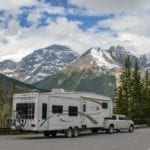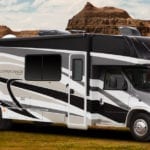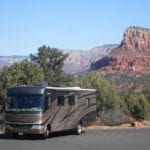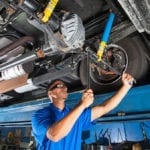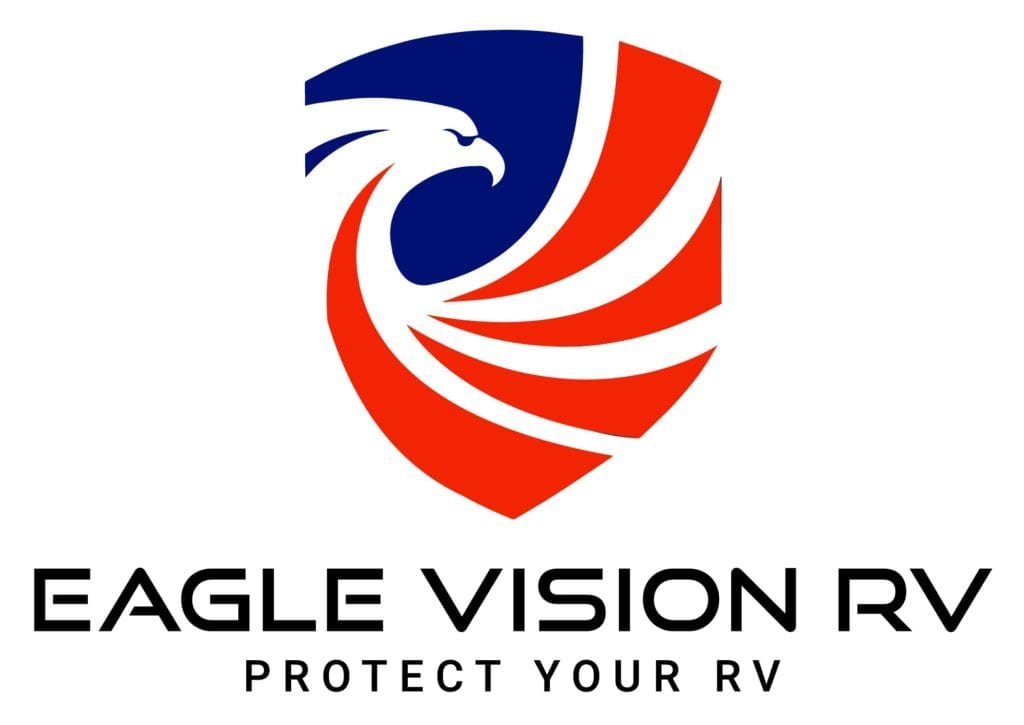What is an RV extended warranty?
An RV warranty, also called a service plan or service contract, helps cover repair costs when the vehicle’s systems and appliances suffer mechanical failure. Warranty plans cover motorhomes, travel trailers, 5th wheel trailers, toy haulers, and other types of RVs. We’ve researched the industry to bring you the best extended RV warranty providers.
What is an RV extended warranty?
An RV warranty, also called a service plan or service contract, helps cover repair costs when the vehicle’s systems and appliances suffer mechanical failure. Warranty plans cover motorhomes, travel trailers, 5th wheel trailers, toy haulers, and other types of RVs. We’ve researched the industry to bring you the best extended RV warranty providers.
Our Top RV Warranty Picks
Best Overall 2024
America's RV Warranty
- Accepts Mobile Mechanic Repairs
- 4 Plans to Meet Any Coverage Needs
- Coverage Available in All 50 States and Canada
- US-Based Dedicated Account Management
- Backed By A Rated Insurance Carrier
The most recent addition to our RV Warranty list is America’s RV Warranty, a company that is shaking up an already competitive industry. Founded in 2018, they offer exclusionary and listed component plans for all types of RVs: Class A, Class B, and Class C motorhomes as well as towable RVs like travel trailers. Coverage for seals and gaskets is available under certain policies, and customers can also add optional coverage for tires and/or consequential damage.
In an industry where coverage options are similar—companies often sell the same product—two major factors set ARW apart: repair flexibility and service.
As of March 2022, ARW is the only company that allows any repair to be made via mobile mechanic. Since licensed repair facilities have wait-lists that are weeks or even months long, many RV owners are now using mobile mechanics. For ARW customers, at least, that solution will work just fine with their coverage. Other companies require that the RV must be disabled to be eligible for mobile mechanic coverage.
America’s RV Warranty stands out with superior service by being a partner with Headstart Warranty Group, their administrator, rather than just being a broker to them.
The distinction is small, but important. For customers, this means that ARW and the plan administrator work closely together, resulting in better follow-through and less snags during the process. The end result—a smoother ride through claims. Their policies cover repairs at any qualified repair facility in the US or Canada.
RV owners who choose America’s RV Warranty receive benefits such as service call reimbursement for mobile mechanics. Customers receive a free membership to the Family Motor Coach Association (FMCA), which provides discounts on camping and roadside assistance. The company also provides a membership to Money Tips, a free credit-tracking service that protects against identity theft and offers personalized financial tips.
America’s RV Warranty currently covers every state.
Good Sam Extended
Service Plan
- Flexible Payment Options
- Coverage Available in All 50 States and Canada
- Plans Are Fully Transferable
- Travel Expense Reimbursement Covers Food, Lodging, & Car Rental Costs While RV Is In The Shop
- No Roadside Benefits Included With Coverage
The longest-running company in the business, Kentucky-based Good Sam has been offering all sorts of RV services since 1966. Like other companies on this list, the Good Sam Extended Service Plan provides listed component policies for motorhomes, fifth wheels, and travel trailers.
They also provide service plans for tow vehicles and personal automobiles. For RVs, optional coverage is available for tire protection and seals and gaskets. Roadside assistance can be purchased separately for any eligible vehicles.
Customers also receive a few benefits. For example, the travel benefit assists with the costs of food, lodging, and car rental while the RV is in the shop. Good Sam allows RV owners to use any qualified repair facility in the US or Canada, but customers receive a 10% discount on non-covered repairs when they use a Preferred Provider.
Good Sam’s coverage is time-tested, but other companies might offer more extensive coverage. Their featured Gold Plan does not include the consequential damage coverage commonly found in other policies, and their website does not mention any exclusionary policies.
Their sample terms and conditions also note that they will only cover the cost of 1-2 hours of the service facility’s labor for diagnosis, depending on the issue. While this limitation usually won’t cause problems, it could mean the RV owner pays more out of pocket on major repairs.
As long as customers understand the coverage before buying, they won’t have any big surprises down the road, and the benefits of club membership enhance the RV lifestyle.
Eagle Vision RV
- Flex Length Coverage
- Gas/Diesel/Trailer Coverage
- Easy Purchase Options With Financing
- Travel/Rental/Food Loss Reimbursement
- 24/7 claims & assistance
For travelers looking for the ultimate flexibility in payment options, Eagle Vision RV offers a solution. Whether you’re looking to save money on a higher deductible or get the ultimate peace of mind with lots of warranty options.
Eagle Vision offers travel trailer warranties and motorhome warranties through two different administrators: Xtra Ride and Open Road. Eagle Vision is the exclusive broker for Open Road service plans. RV owners have the choice of exclusionary and listed component policies, and optional coverages are available for consequential damage, wheels and tires, audio/visual components, and 24-hour towing and roadside assistance.
Certain plans also carry a pet benefit, travel expense coverage, service call reimbursement for mobile mechanics, and food spoilage if the refrigerator fails. The benefits are policy-dependent, and not all policies are available in all states.
Eagle Vision is an industry newcomer, so customers who prefer a well-established company might want to gauge their performance by reading reviews (most of which are positive) on forums. Their website lacks organization, which can leave readers overwhelmed. It does, however, contain the itemized coverage that prospective customers would want to see before buying.

RVING Solutions
- 2 Plans To Choose From
- Travel Expenses, Food Loss Reimbursement
- Fuel/ L.P. Gas Delivery
- 24/7 Concierge Service
RVing Solutions has been in business since 2005 and are well-established in the industry. Based in Lakeview, Ohio, they offer exclusionary and listed component policies for RVs (including travel trailers) and UTVs (utility vehicles). RVing Solutions works with two administrators—Interstate Star RV Program and Preferred RV—and provides a detailed list of exactly which components are covered on a given item. This list, which is featured on their homepage, is a valuable resource for RV owners seeking to understand how a warranty functions.
Aside from their coverage, RVing Solutions offers optional tire coverage and a solid set of benefits: towing (up to $1,000), emergency road service, food spoilage, and 24/7 concierge service. They also offer fuel/l.p. gas replacement, which assists with the cost of gas lost from repairs. Their travel expense benefit is more robust than other companies, covering up to $250 per day for food and lodging while repairs are in progress.
RVing Solutions models their brand as the hassle-free warranty company: they won’t use loopholes to deny claims, but will do their best to protect your costs. But even with the best of intentions, RVing Solutions is a broker just like any other company; they are not in direct control of authorizing and denying claims. Even so, their 15 year track record proves that they care about the coverage they provide to customers.
About Warranties
For many travelers, RV warranties offers peace of mind for their recreational vehicle by covering RV repair costs. A reputable company allows customers to use their coverage at any licensed repair facility in the United States or Canada.
Mechanical Breakdown
A warranty covers repairs when items fail in their daily operation (the industry uses the term “mechanical breakdown”). RVs are essentially houses on wheels, and even well-constructed motorhomes face immense strain from their time on the road. Many owners also complain that RV manufacturers follow lax quality control standards in an effort to keep up with growing demand.
Warranty or Service Contract?
Technically, the warranty coverage offered by these companies isn’t a warranty—warranties by definition come directly from the manufacturer. A more accurate term is vehicle service contract (some people even call them protection plans), but the companies on our list cover the same issues a warranty would cover.
Unlike a manufacturer’s warranty, an extended warranty is easier to customize and covers all items over the same period (with many RV manufacturer warranties, different items are covered for different lengths of time).
RV Warranty Coverage Details
Covered Items
Warranty coverage depends on the type of policy purchased. Customers can choose what level of coverage they want, and motorhome owners can choose to cover the automotive components, the coach components, or both. Items that are typically covered:- Engine
- Transmission
- Drive Axle
- Refrigerator
- Air Conditioners (both cab and coach)
- Heating Systems (both cab and coach)
- Fresh Water System
- Waste Water System
- Generator
- Kitchen Center
- LP Gas Systems (including gas valves)
- Slide Outs
- Water Heater
- Deluxe Appliances (icemaker, washer/dryer, etc.)
Not the same as RV Insurance
Remember, extended service plans cover costs related to mechanical components that break down. This is different than RV insurance, which covers damage from accidents and weather.
For example, an extended service plan like one offered by one of the companies below will cover the repair facility’s bill to fix the AC when it fails mechanically, perhaps needed replacement of the thermostat or compressor. If the rooftop AC unit is damaged by a falling limb, however, it will not be covered and would be an issue for the insurance company.
Some companies call their warranties “mechanical breakdown insurance coverage,” but their coverage is no different from that of other warranty companies.
For more information about the difference between an extended rv warranty and an insurance policy, check out this blog post.
Common Optional Coverages
These popular add-on features offer additional protection for your recreational vehicle.
Wheel and Tire – Covers repair and replacement of wheels and tires when they are damaged on the road.
Power Surge – Covers the cost of electrical or electronic items damaged by a power surge.
Commercial Use – Applies to units owned and operated by a business.
Navigation Package – Covers navigational equipment like GPS system and satellite antenna, compass, electronic information displays, and more.
What About Roadside Assistance?
RV warranty plans typically come with optional roadside assistance coverage. Compared to roadside assistance plans purchased separately, these plans are often offered at a discount, which can add up to great savings over time.
Typical roadside assistance coverage features include:
- Towing and/or winching
- Locksmith services
- LP gas and fuel delivery – Fuel and other essential supplies will be delivered to get your RV moving again.
- Travel expense reimbursement – this helps to cover the cost of food, lodging, and transportation while your RV is in the shop.
- Concierge services
- Battery Jump-start Service
- Mechanical First Aid – Minor fixes and adjustments to help get your RV back on the road.
- Tire service – This service will install your spare tire in the event of a flat.
Types of Warranties
There are two main types of warranty plans: exclusionary coverage and named-component coverage.
Companies also offer extra coverage for things like tires, consequential damage, and more (see “Common Optional Coverages” above).
Exclusionary Warranties
Exclusionary policies provide a list of items and issues that are not covered. Anything not on the list is covered under the policy. These policies cover more issues than listed component policies, and represent the most complete coverage a company offers.
Because of this, they generally cost more than listed component plans—how much more depends on the company, the vehicle, and the length of coverage.
Named Component Warranties
Compared to exclusionary policies, named component plans describe coverage through an opposite approach: the policy lists the items and issues that are covered, and anything not listed is not covered.
Since these plans cover fewer issues than exclusionary policies, it’s easier to list which items are covered. Typically, named-component warranties still offer solid, comprehensive coverage for both motorhomes and towables.
Named component policies are also sometimes referred to using the terms listed coverage and stated coverage.
Coach Only
Coach-only warranties focus on the living section of the RV and exclude coverage for automotive items. The term “Coach Only” only applies to motorhomes, since towable RVs by definition lack the automotive components such as engine, transmission, brakes, cabin AC, and drive train.
Powertrain
Powertrain warranties cover the engine, transmission, and drive axle components like the drive shaft. These are the items that produce and deliver the power that make your motorhome go where you want.
Manufacturer’s Warranties
When a manufacturer produces and sells a new RV, they usually include a warranty policy on the new unit. This policy protects the RV owner in case items are defective or were improperly installed.
The length of the warranty and the items covered vary from manufacturer to manufacturer, and some warranties are more limited in the issues they will cover than others. Depending on the manufacturer, different items on the RV may be under warranty for different lengths of time—something which is unique to manufacturer’s warranties. Extended warranties cover all items for the same term length.
How to Shop for a Warranty
To find affordable coverage that is right for you, first decide which coverage features are most important to you and how much you are willing to pay. Then you’ll find it easier to compare plans and companies.
Determine Your Coverage Needs
Ask yourself why you want coverage and which issues are most concerning to you. What will it take for you to have peace of mind while operating your RV?
If you’re worried about your motorhome breaking down on the side of the road and not knowing what to do, you’ll probably want a powertrain plan that includes roadside assistance. If you’re also concerned about everything inside the motorhome, you’ll want coverage for the coach items as well.
Some RVers are only worried about the most expensive items, like the engine, transmission, and suspension, while others rest easy knowing that they have the most comprehensive coverage out there.
Here are a few questions to ask yourself:
Which items, issues, or situations worry you most?
Will worrying about these issues affect how you use your RV?
Are you comfortable without tire and wheel coverage?
Do you need roadside assistance? Do you need the absolute best roadside assistance plan?
Know Your Budget
Decide how much you can responsibly spend on coverage. If you have not purchased your RV yet, it’s wise to consider the cost of maintenance and repairs (whether you plan to purchase coverage or self-insure) as part of the total cost of ownership.
Most companies offer payment plans that spread payments over one or two years, though coverage is cheapest when the plan is paid in full at the beginning. The price difference and payment plan structure differs between companies.
When you have a budget in mind, it becomes easier to evaluate warranty products when you receive quotes.
Compare Providers
It’s time to make some phone calls. While basic plan information is available online and quotes can be emailed, the easiest way to find coverage is to speak with a salesperson. When collecting information, focus on the most important factors to a warranty:
- The monthly, yearly, and total cost
- Deductible
- The number of covered items
- Coverage caps and limits
- Additional benefits
- Optional add-on coverages
Cost and coverage are two most important factors. Since companies offer different coverage lengths and slightly different coverage and benefits, it can be difficult to make an apples-to-apples comparison. At the very least, calculate the annual cost of coverage from each quote you receive.
The deductible reflects how much the customer pays at the time of repair. When the warranty company covers a claim, the customer pays the deductible to the repair facility and the warranty company takes care of the rest. A lower deductible means customers pay less out-of-pocket for repairs.
Deductibles are generally charged per visit to the repair facility, so some customers that need several issues fixed do not have to pay several times the price.
A similar factor to consider is how much the plan pays towards the service fee for a mobile mechanic. Mobile mechanics will repair your RV onsite when it’s disabled. They charge a service fee, sometimes called a trip charge, to cover travel expenses. Most companies assist with this service fee: some pay up to $100 towards the fee, while others cover the entire cost.
To compare coverage, use the information above. At a glance, most warranty plans look similar, so it helps to read each plan’s contract. These are available, or you can request one from a sales representative. The contract goes into detail about exactly how the coverage functions and exactly what it covers.
Some plan features are standard in the industry. For instance, coverage is generally unavailable after 100,000 or 150,000 miles. Other features are only offered by the best RV warranty companies, such as allowing repairs at any service center in the USA or Canada. The best companies are backed by insurance, which guarantees that, even if the company that sold you the warranty goes under, your policy will still be serviced by the administrator who handles your policy’s claims.
A Few Quick Tips
- Look for companies that are backed by an insurance company with at least a B rating. Be wary of low quality extended warranties backed by risk retention groups. All companies on our list are backed by rated insurers.
- Choose a company that is accredited by the Better Business Bureau® (BBB). All companies on our list have accredited BBB business profiles.
- Older or higher mileage RVs might not be eligible for all types of coverage or from coverage from all companies.
- A reputable company will allow RV repairs at any qualified service centers in the US or Canada.
How We Choose the Best Companies
Transparency
Because RV Warranties are complex products, the companies with the most satisfied customers are the ones that honestly and openly disclose plan details, pricing, and limits and exclusions to coverage.
They also honestly answer questions about the competition and the RV industry in general. We reviewed 11 companies and recommended companies that provide sample contracts and concise details online. We also used secret shoppers who pretended to be searching for coverage for a used RV, and these shoppers asked all sorts of tough questions about policies, claims,
Claims Processing
How the warranty works when you use it is a big factor for us. We looked at the claims process from start to finish and reviewed providers that offer reasonable service fees and simple instructions. These companies also allow customers sufficient time to notify them of repairs if the repairs were performed without pre-authorization.
We also took into account the relationship between each company and administrator, the simplicity of the claims process with each company, and how each company handles issues and mistakes.
Because there are several parties involved—the customer, the service center, the administrator, and the warranty company—a company with a close relationship to their administrator and their customer will provide the best experience and savings.
Coverage Options
Flexible coverage allows you to get the coverage you need. The companies we recommended offer a range of choices for coverage level, deductible, and/or payment options. Be wary of salespeople who won’t explain different coverage options: they might be trying to sell you a plan that works for their paycheck, but not for your needs. Our secret shoppers asked plenty of questions regarding different coverage choices, the difference between policies, and the cost of all policies involved.
Customer Service
Companies with good communication and 24/7 customer support provide customers with superior service. We read reviews and spoke with repair facilities and service representatives to learn about how the RV warranty industry functions and which practices offer the best results of RV owners.
Additional Benefits
Who doesn’t like extra benefits? Roadside assistance benefits and discounts on goods, services, and memberships provide extra perks for RVers, and the best companies have something to offer in addition to their warranty coverage.
